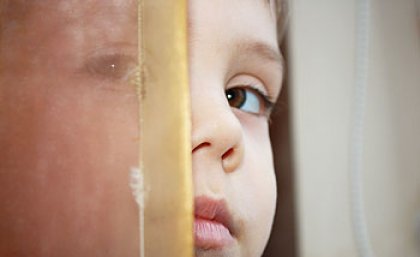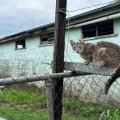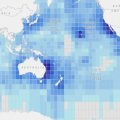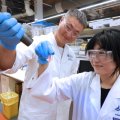
University of Queensland research has found children who have been abused or neglected are likely to struggle academically during adolescence.
The research drew upon data from the Mater-University Study of Pregnancy (MUSP) – a longitudinal study of more than 7000 mothers and their children born at Brisbane's Mater Hospital from 1981-83.
Lead author and paediatrician Ryan Mills said the research involved confidentially linking allegations of maltreatment reported to the Department of Families, Youth and Community Care with the MUSP database.
“Both child abuse and child neglect are independently associated with impaired cognition and academic functioning in adolescence,” Dr Mills said.
“These findings suggest that both abuse and neglect have independent and important adverse effects on a child’s cognitive development.”
The MUSP database provided results of numeracy, literacy and abstract reasoning tests completed by 3796 adolescents at age 14.
The 298 adolescents (7.9 percent) who had been reported as victims of maltreatment scored the equivalent of approximately three IQ points lower than those who had not been maltreated, after accounting for a large range of socioeconomic and other factors.
Co-author Lane Strathearn, a UQ medical and PhD graduate now based at the Baylor College of Medicine and Texas Children's Hospital, said this study was one of the first to analyse outcomes of abuse and neglect independently.
“Studies have repeatedly demonstrated that at least half of maltreated children experience more than one type of abuse or neglect,” Dr Strathearn said.
“Our sample was no different; 74 percent of the children reported to the state as suspected cases of neglect also had been reported as suspected victims of abuse.
“Our method involved grouping the physical, emotional and sexual abuse cases together and assessing both abuse and neglect - reported or substantiated - as independent nonexclusive predictor variables.”
The results highlighted the seriousness of child neglect, Dr Strathearn said.
“The effects of abuse and neglect were found to be independent and quantitatively similar; children who experienced both abuse and neglect were doubly affected,” he said.
“The results support the notion that child neglect has developmental effects that are independently at least as deleterious as abuse, which has important implications for the allocation of resources into additional research into, and prevention of, child neglect.”
Dr Mills and Dr Strathearn worked with a team of UQ colleagues, including Rosa Alati, Michael O'Callaghan, Jake Najman, Gail Williams and William Bor.
The study was published online this month in medical journal Pediatrics.
Media: Dr Mills (Ryan_Mills@health.qld.gov.au), Dr Strathearn (lanes@bcm.edu (based in Texas)) or Penny Robinson at UQ Communications (07 3365 9723, penny.robinson@uq.edu.au)
.jpg)











